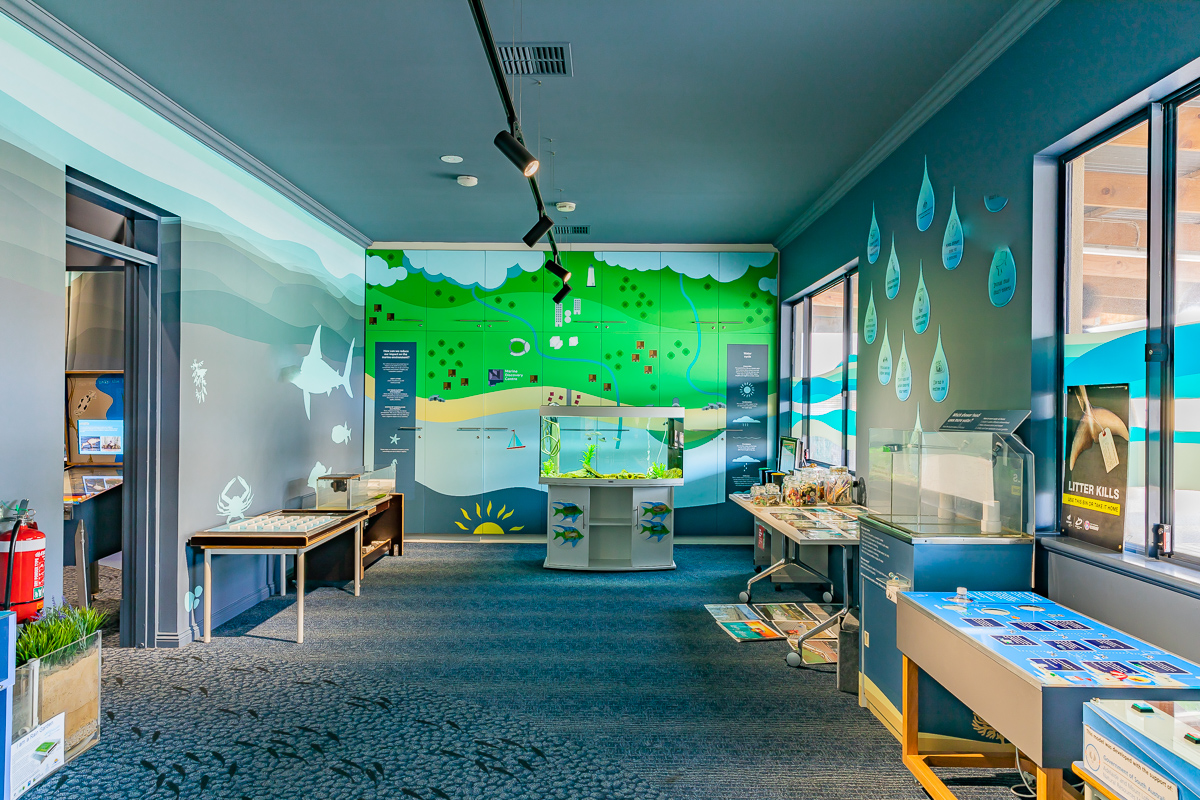
The Marine Discovery Centre prides itself on educating young minds, in interactive tours, on not only marine life; but sustainability itself. The aforementioned ‘catchment to coast’ room is one of four educational hubs in the centre, and details how we can personally be more sustainable each day.
Litter is a huge hindrance to our climate’s progress, and we explore the consequences of thoughtless rubbish disposal. “I’ve placed a lifespan for rubbish from 2-3 weeks to 1 Million years. I need you guys to tell me which piece of rubbish goes where.” describes Georgie Kenning, resident Marine Scientist and educator. Through this exercise children learn the lifespan of rubbish, and afterward, thoughtful rubbish disposal and low carbon footprint products to purchase in the first place. This activity commences the investigation of the room.

Another stream of the area involves the conservation of water – from shower heads to improving water quality, it’s all connected. A standout is a display where two shower heads are compared; one head uses half of the amount of water the other does per minute. A water efficient showerhead saves more than water; it can also save you money on bills, reduce your energy consumption and result in a personal reduction of greenhouse gas emissions. (Water H. , 2019)

Rain gardens, garden beds that filter stormwater runoff from surrounding areas, are also detailed (Water, 2020). These bioretention systems use soil, plants and microbes to biologically treat stormwater. An easy guide to building your own rain garden can be found here.

At the end of each day, Carmen Bishop, our Partnerships and Marketing Manager, Karno Martin, our Cultural Educator and Georgie Kenning, our Marine Scientist advise students to pass on one thing they learnt that day to a friend and vice versa. This information can then be told to the children’s families, their families pass that on and so on; by the end of the year 8000 new things are learnt by visiting the centre for a single day. We equip our visitors with the knowledge to live a sustainable life for generations to come.
Works Cited
KESAB. (2015, April). Litter Less. Retrieved from http://www.kesab.asn.au/litterless/interactives/
Water, H. (2019). Showerheads. Retrieved from https://www.hunterwater.com.au/Resources/Documents/Fact-Sheets/Saving-Water/showerhead-facts.pdf
Water, M. (2020). Raingardens. Retrieved from https://www.melbournewater.com.au/planning-and-building/stormwater-management/options-treating-stormwater/raingardens